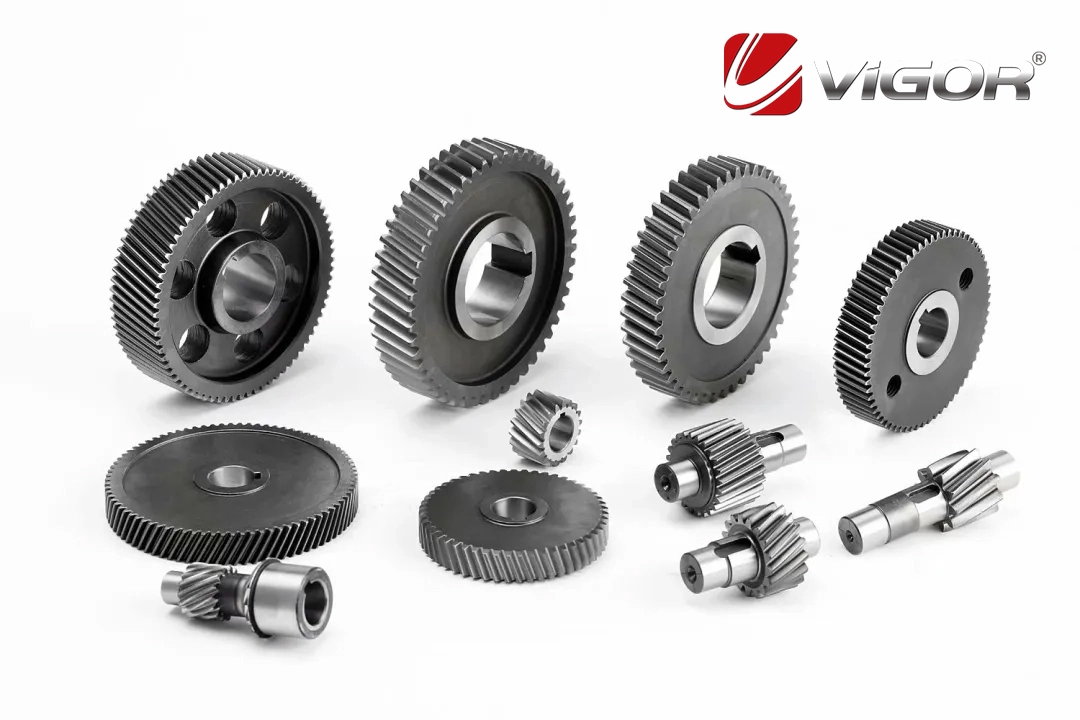
Knowledge
The Main Technical Classifications of Gear Manufacturing Processes

The main technical classifications of gear manufacturing processes can be divided into the following categories:
1. Forming processes: including casting, molding, drawing, or extruding tooth shapes, etc. These methods form the tooth shape of the gear in one go through molds or cores, and are suitable for large gears or non-critical applications. Specifically, they include:
1. Casting such as sand casting, die casting, and investment casting, suitable for different production scales.
2. Molding suitable for non-critical applications, such as toys, small household appliances, etc.
3. Powder metallurgy is used for manufacturing small-sized gears, with customizable material properties.
4. Cutting processes: including milling, hobbing, shaping, shaving, grinding, etc. These methods cut the gear layer by layer through cutting tools, and are suitable for manufacturing high-precision gears. Specifically, they include:
4. Milling teeth using a milling machine to cut the gear blank and form the tooth slots.
5. Hobbing forming the tooth shape through the combined motion of the hob and the workpiece, suitable for batch production.
6. Shaping is suitable for internal teeth and gears with complex structures.
7. Shaving is used to improve the tooth surface quality, as an intermediate step in finishing.
8. Grinding, including gear grinding and lapping, is used for the final processing of high-precision gears.
9. Plastic forming: including forging, extrusion, rolling, etc., suitable for gears requiring high mechanical properties. Specifically, they include:
10. Forging involves obtaining a uniform microstructure through hot forging or warm forging.
11. Extrusion is used for manufacturing gears with complex shapes.
12. Rolling improves the surface quality and precision of the gear through rolling tools.
Finishing: including polishing, lapping, etc., is used to further enhance the surface quality and precision of the gear.
The choice of these processes depends on the application, precision requirements, and production scale of the gear.
Selection and Performance Requirements of Gear Materials
The selection of gear materials should comprehensively consider their performance requirements and application environments. The main performance requirements include:
High strength and wear resistance: Gears need to withstand large loads and impacts, so the material should have sufficient strength and wear resistance to extend service life.
Good toughness: The material should have adequate toughness to prevent root breakage and enhance impact resistance.
High hardness on the tooth surface: The tooth surface should have high hardness to improve wear resistance and resistance to pitting.
High contact and bending fatigue strength: The material should have high contact fatigue strength and bending fatigue strength to prevent tooth surface fatigue and gear tooth breakage.
Heat treatment performance: The material should be easy to undergo heat treatment (such as quenching, tempering, carburizing, etc.) to improve its mechanical properties.
Process performance: The material should have good cold and hot working properties, such as forging, casting, and cutting.
Economy: Under the premise of meeting performance requirements, materials with lower costs should be selected as much as possible.
Commonly used gear materials include steel (such as carbon steel, alloy steel, carburized steel), cast iron (such as gray cast iron, ductile iron), and non-metallic materials (such as plastics, ceramics). Among them, steel materials have the best comprehensive performance and are suitable for most working conditions; cast iron is low in cost but has lower strength and is suitable for light-load gears; non-metallic materials are suitable for high-precision or light-load gears with special requirements.
Vigor team has more than 20 years experience on die forged gear and gear shaft production, machining, different treatments and delivery. If you have any question, or parts need to be developed, please feel free to contact us at info@castings-forging.com



